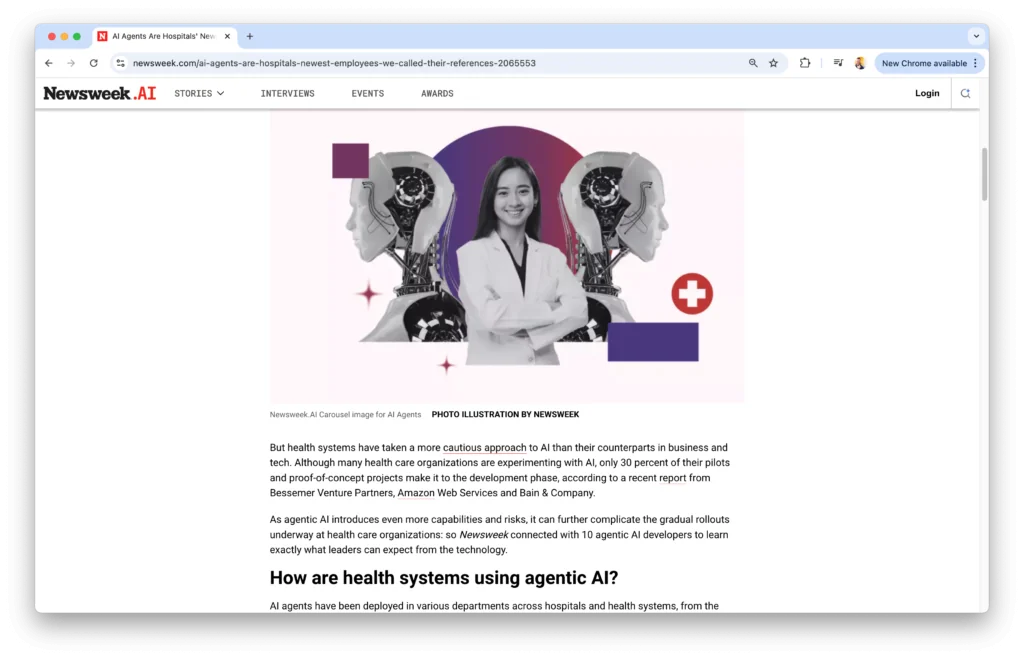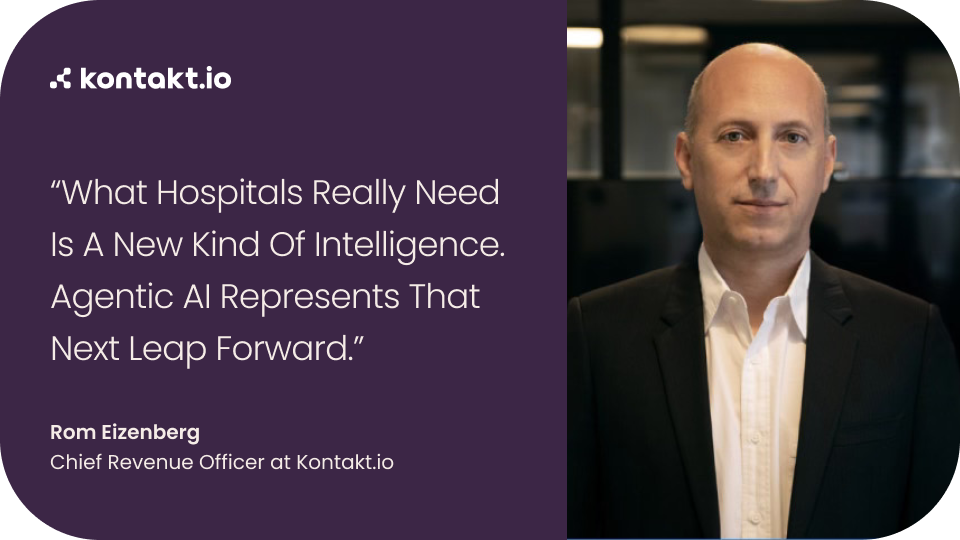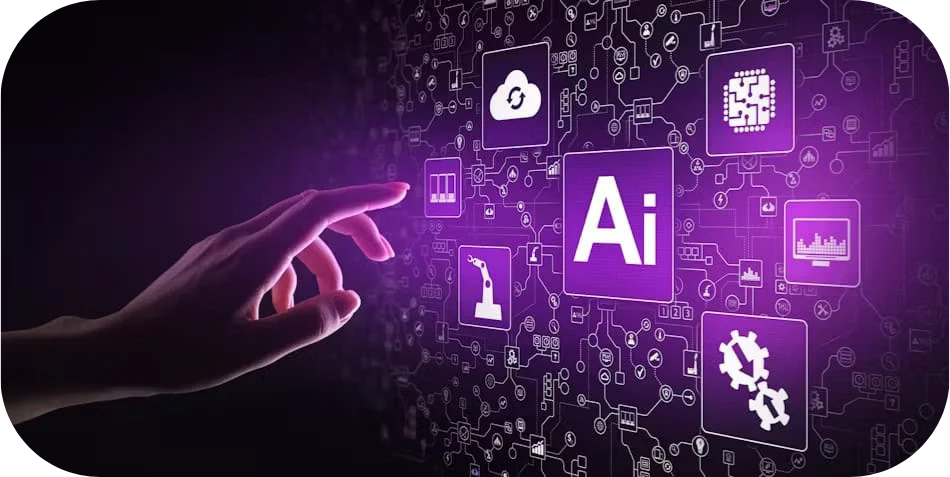Excerpted from AI Agents Are Hospitals’ Newest ‘Employees.’ We Called Their References by Alexis Kayser, Healthcare Editor at Newsweek.
There’s a new type of AI bot on the block—and this time, it’s completely autonomous.
AI agents are steadily making their way into the public consciousness as more companies release them. Last year, generative AI was all the rage, producing ambient scribes that could transcribe a conversation into clinical notes and in-box bots that could draft responses to patients’ MyChart messages. This year, however, the spotlight has shifted to agentic AI, which can initiate a task and complete it—start to finish—without human intervention or oversight.
It’s widely considered that this technology could change the way health care organizations function. Earlier iterations of AI could make humans’ work easier, more efficient or more accurate, but AI agents can work independently of us. While generative AI can answer your questions, agentic AI can pose its own and even reason through them.
AI agents are improving system-level efficiency too. Take Kontakt.io for example: It is designed to orchestrate the chaotic reality of hospital operations by continuously gathering, reasoning through and acting on real-time data. The platform starts by graphing a comprehensive map of how patients, staff and clinical spaces interrelate, using live feeds from electronic health records, staffing schedules and inventory management systems (supplemented by Bluetooth technology). This allows it to predict problems, like equipment shortages or staffing bottlenecks, and initiate efforts to prevent them.




